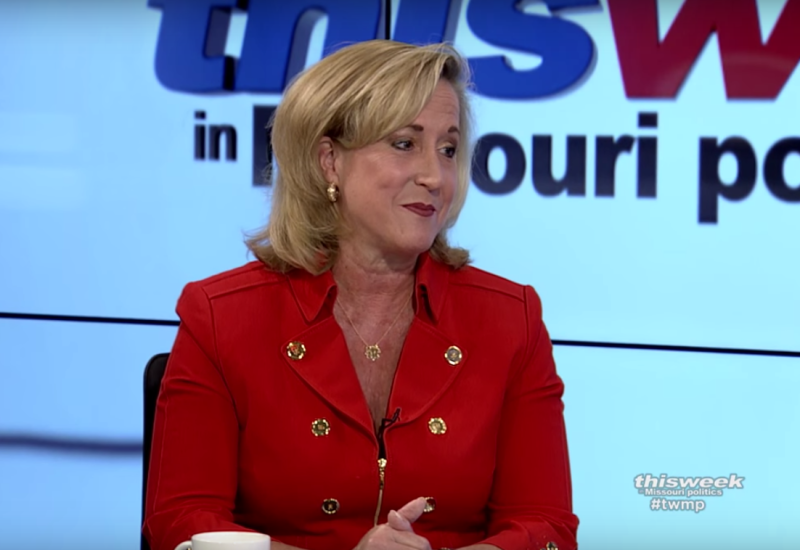Funds for a federal program targeting homelessness could be directed toward domestic violence shelters under legislation introduced this week by Congresswoman Ann Wagner.
The bill from Wagner and Arizona Congressman Tom O’Halleran directs the U.S. Department of Housing and Urban Development (HUD) to include permanent supportive housing, rapid re-housing, and transitional housing in its Continuum of Care (CoC) Program. The $2.6 billion CoC Program provides funding to nonprofits, local governments, and other entities to provide services for people without homes.
“While it is used for homeless services, I think an individual who finds herself in this kind of situation is also homeless in a sense because their home is not a safe place, and they oftentimes must leave immediately,” Wagner told The Missouri Times in an interview. “The first thing they need is a place to go that is safe, and after that, we can get them other resources they need to build back their lives and get out of this cycle of abuse.”
“It can be the difference between life and death,” Wagner continued.

The Republican congresswoman said the legislation — dubbed the HEALS (Help End Abusive Living Situations) Act — would use funds already in place. It also directs HUD to analyze what resources it has to help victims of domestic violence outside of the CoC Program.
O’Halleran, a Democrat, is a former law enforcement officer who often responded to calls of domestic violence.
“I’ve seen firsthand the damage this uniquely heinous kind of violence can do to families and to survivors,” O’Halleran said. “The COVID-19 pandemic has seriously exacerbated domestic violence incidents and shelters have struggled to keep up. Now more than ever, we must ensure survivors have access to safe housing options. No person experiencing [domestic violence] should be forced to stay in a dangerous situation because they do not have housing elsewhere.”
In Missouri, 36,304 people received services from agencies affiliated with the Missouri Coalition Against Domestic & Sexual Violence (MOCADSV) in 2019. But there were an additional 26,068 requests for service that went unmet because of a lack of resources. About 57 percent of unmet requests for services in one day were for housing and emergency shelter.
That year, more than 350,000 bednights of emergency shelter were provided to adults, youth, and children along with more than 63,000 bednights of transitional housing for adults, youth, and children.
The COVID-19 pandemic impacted resources as shelters lowered capacity or advised against grouping a large number of strangers together.
In 2020, 30,116 people in Missouri received domestic violence services from a MOCADSV member agency, but 26,718 requests went unmet due to a lack of resources. In a one day period, 47 percent of unmet requests were for housing services.
Last year, more than 240,000 bednights of emergency shelter were provided to adults and children along with about 63,000 bednights of transitional housing.
“MOCADSV and our approximately 120 member agencies commend Congresswoman Wagner’s persistent leadership to address barriers victims of domestic violence and sexual assault experience when seeking housing,” Jennifer Carter Dochler, MOCADSV’s public policy director, said. “Emergency shelter is a critical option for survivors, yet not all survivors need that option. It is critical that we expand the housing options available to survivors with transitional housing, rental assistance, and long-term housing options for individuals who have a disability as a result of abuse.”
“The HEALS Act would help prioritize additional housing options for survivors to best meet their needs and continue to evaluate and evolve what kind of housing works best for which kind of situation,” she added.
Wagner said the plan is to attach the HEALS Act to Trafficking Victims Protection Reauthorization Act as the vehicle to get it passed this year. The pair had championed similar legislation last year, but it stalled in a House committee.
“We have seen this real need out there for survivors who are victims of stalking or sexual assault, who are involved in very volitle situations where they don’t have a stable or safe place to live,” Wagner said. “These victims need safe housing options to help them during this cycle of violence that they’re desperately trying to escape. They need a support network that can help them rebuild their lives.”
Wagner said she and O’Halleran have worked with HUD on the legislation.
In August, HUD said it had $2.6 billion to award to homeless services organizations across the country for new and existing projects. The application deadline for the CoC grants is Nov. 16.

Kaitlyn Schallhorn was the editor in chief of The Missouri Times from 2020-2022. She joined the newspaper in early 2019 after working as a reporter for Fox News in New York City.
Throughout her career, Kaitlyn has covered political campaigns across the U.S., including the 2016 presidential election, and humanitarian aid efforts in Africa and the Middle East.
She is a native of Missouri who studied journalism at Winthrop University in South Carolina. She is also an alumna of the National Journalism Center in Washington, D.C.
Contact Kaitlyn at kaitlyn@themissouritimes.com.




























